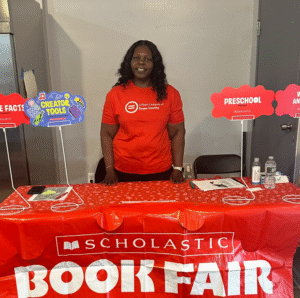Our work supports education equity and urban well-being by connecting research, community voices, and civic action to enhance outcomes for the state’s most vulnerable learners and their caregivers.
This Local Leader spotlight features lifelong Newark resident, Ms. Katina Leake, a woman of faith, homeowner, and community organizer. She serves in an official capacity as the Community Organizer with the Urban League of Essex County. My interview with Ms. Leake revealed a life of commitment to community and compassion for humanity beyond her 9-to-5 in Newark’s Fairmount neighborhood.

Swati Dontamsetti, Claudia M. Castillo-Lavergne, and Vandeen A. Campbell. 2026. Bilingual Education in the U.S. Joseph C. Cornwall Center for Metropolitan Studies, Rutgers University-Newark.